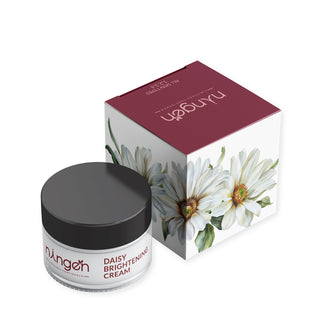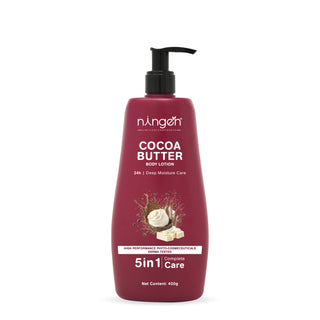Does your skin feel tight, flaky, or rough no matter how much cream you slather on? Finding the right moisturizer can feel overwhelming with so many options on the shelves, each promising smooth and hydrated skin. But don’t worry—we’ve got you covered! Choosing the perfect moisturizer for dry skin doesn’t have to be complicated. It’s about understanding your skin’s needs and picking ingredients that truly work to lock in hydration and restore its natural glow. In this blog, we’ll break down how you choose the right moisturizer effective for dry skin, the ingredients to look for, and tips to keep your skin soft and nourished all day long. Ready to give your skin the love it deserves? Let’s dive in and find your ultimate moisturizing match!
In This Article;
- Understand Your Skin Type
- Recognizing the Unique Needs of Dry Skin
- Key Hydrating Ingredients for Healthy, Glowing Skin
- Avoid Potential Irritants Routine
- Assess Product Texture and Thickness
- Consider Environmental Factors
- Ensure Dermatological Testing
- Recognize the Importance of Frequent Moisturizing
- How to Test a New Moisturizer?
- Final Thoughts
- TL;DR
- Frequently Asked Questions
Understand Your Skin Type
Understanding your skin type is essential for selecting the right moisturizer. Skin types include normal, dry, oily, combination, and sensitive. Normal skin is balanced, while oily skin produces excess sebum. Dry skin needs extra hydration, combination skin is oily in the T-zone and dry elsewhere, and sensitive skin often reacts with redness or irritation.
For dry skin, opt for moisturizers with hyaluronic acid and fatty acids to boost hydration. Oily skin benefits from lightweight, non-comedogenic options, while sensitive skin needs gentle, chemical-free formulations.
Identify your skin type by observing how it feels after cleansing, its reaction to products, and its response to environmental factors. Knowing your skin type helps you choose products that meet your specific needs, ensuring healthy, well-protected skin.
Also read: How to know your skin type?
Curious about your skin type? Try a skin test today!
Recognizing the Unique Needs of Dry Skin
Dry skin requires extra attention and care to maintain its health and hydration. Unlike other skin types, dry skin often struggles with a lack of natural oils and moisture, leading to tightness, flakiness, and sometimes irritation. Understanding your dry skin's specific needs can help you choose the right moisturizer and routines for optimal care.
Key Characteristics of Dry Skin
- Feels tight or rough, especially after cleansing.
- Prone to flaking and sensitivity.
- May appear dull or show fine lines due to dehydration.
- Often experiences itching or redness in extreme conditions.
Essential Needs of Dry Skin
-
Hydration
Dry skin needs intense hydration to replenish moisture. Look for ingredients like hyaluronic acid, glycerin, and aloe vera, which attract and lock in water. -
Nourishment
Emollients such as shea butter, squalane, and ceramides help restore the skin’s lipid barrier, preventing further moisture loss.
- Gentle Cleansing
Opt for non-stripping, sulfate-free cleansers that clean without removing essential oils. Cream or oil-based cleansers work best.
- Protection from Environmental Damage
Use products with antioxidants like vitamin E to shield against pollution and free radicals. Sunscreen is also crucial to prevent UV damage, even on cooler days.
- Nighttime Care
Invest in a rich night cream or sleeping mask that provides deep hydration and repair while you sleep.
Dry skin thrives with consistent care and hydration. By addressing its unique needs, you can restore comfort, radiance, and long-term health to your skin.
Key Hydrating Ingredients for Healthy, Glowing Skin
Hydrating ingredients are the cornerstone of effective skincare, especially for those who are looking for buying skincare products (for example Moisturizer) with dry or dehydrated skin. These powerful components help attract, lock in, and retain moisture, leaving your skin soft, supple, and radiant. Here's a closer look at some key hydrating ingredients to include in your routine:
1. Hyaluronic Acid
Known as the "moisture magnet," hyaluronic acid can hold up to 1,000 times its weight in water. This lightweight, non-greasy ingredient attracts and retains moisture in the skin, plumping it up and reducing the appearance of fine lines.
2. Glycerin
A humectant like hyaluronic acid, glycerin draws moisture from the environment into the skin. It is highly effective in keeping the skin hydrated and smooth, making it a common ingredient in moisturizers and cleansers.
3. Aloe Vera
A soothing and natural hydrator, aloe vera is rich in water content and nutrients. It hydrates deeply while calming irritation, making it ideal for sensitive or dry skin types.
4. Ceramides
These are natural lipids that form the skin's barrier and retain moisture. Ceramides not only hydrate but also protect the skin from environmental damage, keeping it healthy and resilient.
5. Panthenol (Vitamin B5)
Panthenol is a deeply hydrating and soothing ingredient that helps lock in moisture and reduce inflammation. It is especially beneficial for irritated or flaky skin.
6. Squalane
Derived from plants like olives, squalane is a lightweight oil that mimics the skin’s natural lipids. It hydrates without clogging pores, making it perfect for all skin types.
7. Urea
Urea works as both a humectant and an exfoliant, attracting moisture and gently softening dry or rough skin.
8. Lactic Acid
While known as a gentle exfoliant, lactic acid also hydrates the skin by enhancing its natural moisture barrier.
Incorporating these ingredients into your skincare routine—whether through moisturizers, serums, or masks—can help you achieve long-lasting hydration and a healthy, glowing complexion.
Avoid Potential Irritants
Choosing a moisturizer for dry skin means being cautious of potential irritants that can harm your skin barrier. Many skincare products contain ingredients that may irritate or cause allergic reactions, especially if you have sensitive skin. Opt for products labeled as "toxin-free" or "chemical-free" to minimize exposure to harsh substances.
Fragrances
Fragrances in skincare products can lead to allergic reactions or irritation, particularly for those with dry or sensitive skin. These added scents may compromise your skin's protective layer and result in moisture loss. It's wise to choose a moisturizer that is fragrance-free to minimize these risks and keep your skin hydrated without the threat of irritation.
Alcohols
Certain alcohols in face moisturizers can dry out the skin further, exacerbating concerns like moisture loss. Ingredients such as simple alcohols (e.g., ethanol, isopropyl alcohol) tend to strip the skin of its natural oils and weaken the skin barrier. Instead, look for fatty alcohols, like cetyl or stearyl alcohol, which can provide moisture without a greasy residue and support skin health. Always review the ingredient list to ensure your moisturizer aligns with your skin concerns.
Assess Product Texture and Thickness
For dry skin, a thicker moisturizer creates a strong barrier to prevent water loss and lock in hydration. Look for ingredients like hyaluronic acid and fatty acids.
Choose a texture that suits your skin type:
- Dry Skin: Thick, creamy formulas.
- Oily Skin: Lightweight, gel-based options.
- Combination Skin: Balanced textures, not too thick or light.
- Sensitive Skin: Fragrance-free, gentle creams.
- Mature Skin: Rich textures with anti-aging properties.
Ensure your moisturizer absorbs well without leaving a greasy feel, is free of harmful chemicals, and includes sun protection for added care.
Consider Environmental Factors
Environmental factors like weather, pollution, and sun exposure play a vital role in your skin’s hydration needs.
- Cold Climates: Opt for heavier, occlusive moisturizers to prevent moisture loss.
- Humid Conditions: Use lighter, hydrating formulas with hyaluronic acid.
- Pollution Protection: Choose products with antioxidants like vitamin E or green tea to fight free radicals.
- Sun Exposure: Select moisturizers with SPF for added UV protection.
- Sensitive Skin: Go for toxin-free, gentle formulas to avoid irritation.
Tailor your moisturizer to your skin type and environmental conditions for optimal care and hydration.
Ensure Dermatological Testing
Dermatologically tested products ensure safety and effectiveness for all skin types, including sensitive and mature skin. These products undergo rigorous evaluations to minimize irritation, allergies, and adverse effects, supporting skin health without harming the protective barrier.
- For Skin Concerns: Ideal for dry or acne-prone skin, as they maintain hydration without clogging pores.
- Gentle Formulations: Opt for toxin-free options to reduce irritation, especially for sensitive skin.
- Key Ingredients: Look for hyaluronic acid and fatty acids to boost moisture and strengthen the skin barrier.
Incorporating tested products into your routine ensures healthier, more resilient skin.
Recognize the Importance of Frequent Moisturizing
Frequent moisturizing is vital for healthy skin, especially dry types. It strengthens the skin barrier, prevents moisture loss, and shields against environmental stress.
- For Dry Skin: Choose moisturizers rich in fatty acids and hyaluronic acid to replenish hydration and protect skin health.
- Gentle Choices: Opt for toxin-free products to avoid irritation, particularly for sensitive or mature skin.
A daily moisturizing routine keeps skin hydrated, supple, and resilient while preventing dryness and irritation.
Also read: Best moisturizer for oily skin.
How to Test a New Moisturizer?
Patch test first: apply a small amount on your wrist or behind the ear and wait 24-48 hours to check for irritation. Ensure the moisturizer absorbs well without leaving a greasy residue and supports hydration.
For dry or sensitive skin, look for ingredients like hyaluronic acid and fatty acids to strengthen the skin barrier. Gradually introduce the product into your routine, starting once daily, and monitor for improved hydration, texture, or appearance. Tailor your choice to your skin type for best results.
Final Thoughts
Selecting the right moisturizer is more than just a step in your skincare routine—it’s an investment in your skin’s health and overall well-being. The right moisturizer not only hydrates but also strengthens your skin barrier, preventing issues like dryness, irritation, and premature aging. By understanding your skin type, environmental factors, and the ingredients that truly benefit your skin, you can choose a product that supports your unique needs. A well-chosen moisturizer keeps your skin nourished, protected, and glowing, helping you feel confident and radiant every day.
TL;DR
Struggling with dry skin? Choose a moisturizer with hydrating ingredients like hyaluronic acid, fatty acids, and ceramides. Avoid potential irritants such as fragrances and simple alcohols. Consider environmental factors like climate and pollution when selecting your product, and always test for skin compatibility. Regular moisturizing is key to maintaining hydrated, radiant skin.
Frequently Asked Questions
Q1. What is the best chemical-free moisturizer for dry skin in India?
The best chemical-free moisturizers for dry skin often include ingredients like hyaluronic acid, ceramides, and fatty acids. Look for products labeled as toxin-free and fragrance-free.
Q2. Why is hyaluronic acid essential in a moisturizer?
Hyaluronic acid attracts and retains moisture, making it a key ingredient for dry skin to stay hydrated and plump.
Q3. How do I choose a face moisturizer for sensitive skin?
Opt for dermatologically tested, fragrance-free, and chemical-free products to minimize the risk of irritation or allergic reactions.
Q4. Is it safe to use moisturizers with fatty alcohols?
Yes, fatty alcohols like cetyl and stearyl alcohol are safe and help moisturize and strengthen the skin barrier without clogging pores.
Q5. Can I use a single moisturizer for both dry and sensitive skin?
Yes, choose a moisturizer with gentle ingredients like aloe vera, ceramides, and hyaluronic acid that cater to both hydration and sensitivity.
Q6. Should I use a different moisturizer in winter?
Yes, in colder months, switch to a heavier, occlusive moisturizer to protect against dryness and moisture loss caused by harsh weather.
Q7. What is the importance of a patch test for moisturizers?
A patch test helps identify potential irritants and ensures the product is safe for your skin, especially for sensitive or allergy-prone skin.
Q8. Can moisturizers protect against pollution and sun damage?
Yes, moisturizers with antioxidants like vitamin E and added SPF provide protection from environmental stressors like pollution and UV rays.
Q9. Are gel-based moisturizers suitable for dry skin?
While gel-based moisturizers are lightweight and better suited for oily skin, dry skin may benefit from cream-based or thicker formulations.
Q10. What are the key ingredients to look for in a moisturizer for dry skin?
Hyaluronic acid, glycerin, ceramides, and natural oils like squalane are excellent for boosting hydration and maintaining the skin barrier.










